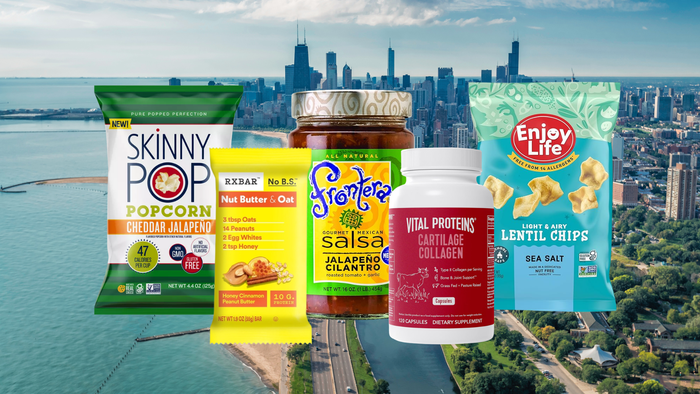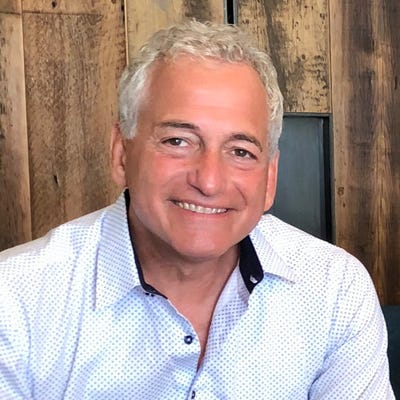Now’s the time for investors to put their money in natural CPG brandsNow’s the time for investors to put their money in natural CPG brands
Consumers are focusing on wellness and environmental sustainability. Wise investors should support the products that fill those needs. Find out more.

The last few years have been rough for emerging food and beverage companies as they try to grow in the consumer packaged goods (CPG) industry. The pandemic’s disruptions were followed by much higher interest rates. Then tight money prompted many investors to close their wallets to brands seeking new capital.
With resources limited, many promising companies were unable to fund growth and instead hunkered down, seeking a path to profitability. Some closed. The irony of this situation is that consumer demand is soaring for the kinds of products many of these early-stage companies produce: a strong focus on wellness and environmental sustainability while providing the flavors and experiences that today’s eaters want.

Chicago skyline photo credit: Canva
Given the enormous growth potential of many of these startups, it is time to start investing in emerging CPG brands again.
The golden age of food investing was not very long ago. Many of the Chicago, Illinois, region’s groundbreaking better-for-people-and-the-planet food brands grew into category leaders and were purchased by big food companies:
Skinny Pop sold to The Hershey Company, $1.6 billion.
Vital Proteins sold to Nestlé Health Science, $1.5 billion.
RXBAR sold to Kellogg, $660 million.
Factor sold to Hello Fresh, $277 million.
Frontera Foods sold to Conagra, $109 million.
Enjoy Life sold to Mondelēz, $81 million.
With this level of activity, Chicago has truly been the leader in emerging food brand exits. Up-and-coming regional superstars, such as Chomps, Farmer’s Fridge, Nature’s Fynd and Simple Mills are the next tier of possible exits or IPOs.
The good news is that, despite the overall tightening of purse strings over the past few years, some Chicago investors have continued to provide capital to startups in recent years with good results. Barrel Ventures was a pre-seed investor in Olipop, a functional beverage that is leading a revolution in the soda industry. According to Bloomberg, Olipop is on track to hit $500 million in sales in 2024, double the amount the year before.
“We came into Olipop pre-seed and have come back in every round since,” said Nate Cooper, managing partner at Barrel Ventures. “It combines reduced sugar, fiber and probiotics with innovative flavors to truly disrupt the category. Category-defining brands often arise from a strong ecosystem around them. Chicago in 2024 is as ripe an ecosystem as any in the world. "
S2G Ventures, based in Chicago’s Fulton Market District, has a food portfolio that is one of the largest in the nation with more than 20 CPG brands. They had previously restricted their activity to follow-ons of previous investments, but that has changed.
"It’s a great time to lean into CPG from my perspective, especially as it relates to brands seeking to drive positive environmental and human health outcomes,” said Chuck Templeton, managing partner at S2G, who previously founded the OpenTable restaurant reservation site.
“The potential for innovation in this space is immense and we believe there are many untapped markets that are ready for disruption,” he added. “We are actively seeking food brands that have achieved some scale with high velocities and strong management. By investing strategically now, we have an opportunity to help shape the next wave of category leaders."
S2G was one of the first investors in Once Upon a Farm, a children’s food company run by CEO John Foraker, formerly the head of the hugely successful Annie’s Homegrown CPG brand. After selling Annie’s to General Mills for $820 million, Foraker built a team with Once Upon a Farm that includes actress Jennifer Garner. The company is expected to hit a $250 million run rate this year.
Foraker is also an active investor in other emerging CPG brands. He recently spoke at the Naturally Chicago Financing and Innovation Forum and Pitch Slam, where he implored investors to get back into food investing:
"This is the best environment for premium CPG growth I’ve seen since 2010. Period. Ironically, this is all while the fundraising environment for emerging brands is horrible. Stabilizing, yes, but still very, very bad,” he said. “On demand, there are more health-oriented consumers than ever, there’s broader availability for healthier options than ever, and this is all meeting strong consumer spending and consumer interest that appears resilient. Many brands are going to have massive years in [2024]. I think retailers are also going to light it up."
A major advantage for investors is the fact that valuations have been driven down by lack of capital.
Also, Big Food companies have been rocked by the rising numbers of people who are using Ozembic, Wegovy and other semaglutide drugs to lose weight and keep it off. Smart companies will put a greater emphasis on building innovative brands that offer delicious and nutrient-dense food, as many consumers who are utilizing those medications turn away from products with high levels of sugar and empty carbohydrates.
Retailers in the Chicago area are embracing emerging brands and giving them shelf space. Fresh Thyme Market, Whole Foods Market, Mariano’s, Costco, Goddess and the Grocer, Fruitful Yield and Go Grocer have partnered with Naturally Chicago’s Locally Made Program to bring more local innovative brands to their shelves. Over 160 brands headquartered or producing within 150 miles of Chicago are part of the program, and more than half of these businesses are women owned and/or minority owned.
Naturally Chicago has also expanded its investor programs to build the supply of capital for CPG firms.
Jason Mercer is a principal at Cleveland Avenue, a billion-dollar Chicago-based fund that invests in lifestyle consumer brands and technology companies. He also chairs the Naturally Chicago Investor Committee and has played a key role in helping to grow these offerings.
“The Naturally Chicago Brand Investor Connector Database gives investors access to dozens of emerging CPG brands seeking capital,” he says. “It’s a great service for brands and investors.” The database was developed by Chicago:Blend, a non-profit whose mission is to build a more diverse Venture Capital industry in Chicago.
Naturally Chicago also just absorbed and manages Chicago Seed Co., a group of more than 60 venture capital, family office and angel investors who invest in food. Launched by Bluestein Ventures and Mandell Ventures, the network fosters collaboration among investors and gives them the opportunity to source investment opportunities and support portfolio companies.
Large-scale CPG companies are also active in the venture and mergers & acquisitions (M&A) food space. In recent years, Mondelēz acquired Clif Bar, Chipita, Hů Kitchen and Perfect Bar.
“Snack Futures Ventures was created to invest in high-growth potential brands and businesses with future acquisition in mind,” says Richie Gray, who leads Snack Futures Ventures, Mondelēz International’s Corporate Venture Capital arm. “There are a lot of disruptive, innovative snack brands and technologies across the globe, which make a very exciting time to be a CVC in this space.”
World Business Chicago, the city’s economic development agency, agrees and sees opportunity abounding in natural products CPG.
“Chicago’s leadership in food manufacturing and innovation is not just rooted in our legacy but in our forward-looking commitment to shaping the industry’s future,” said Phil Clement, President & CEO of World Business Chicago. “Emerging brands can thrive and attract investments from investors who recognize the immense opportunities in food CPG. Chicago remains the place where bold ideas in food and beverage come to life, driving the next wave of industry breakthroughs.”
Jim Slama is the managing director of Naturally Chicago.
Have some big ideas or thoughts to share related to the natural products industry? We’d love to hear and publish your opinions in the newhope.com IdeaXchange. Check out our submission guidelines.
Read more about:
IdeaXchangeAbout the Author
You May Also Like





